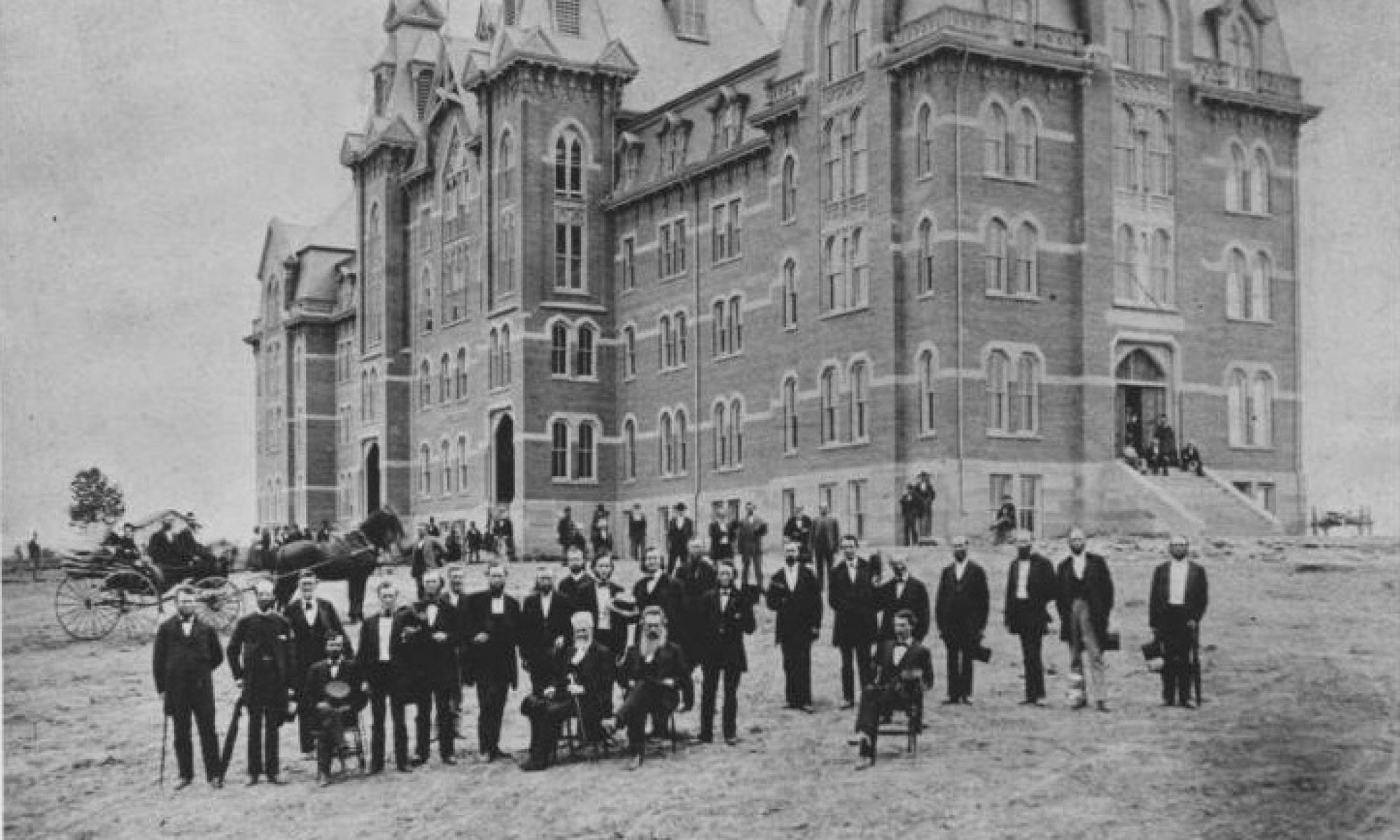Introduction | The Founding | The Founders | The Universalists | The Building | The President and the Faculty | The Students and the Curriculum | The Flourishing
Buchtel College was founded by the Ohio Universalist Convention. Its location in Akron is largely credited to three men: Rev. Andrew Willson, Rev. Henry L. Canfield, and John R. Buchtel. While many devoted people gave their time, money and energy to establish the school, there would have been no “college on the hill” according to author Albert I. Spanton if it were not for Buchtel. A devout Universalist and president of the Buckeye Mower and Reaper Company, Buchtel donated $31,000 to establish the college in Akron; other prominent citizens of the city raised an additional $60,000. Buchtel pledged that he was willing to sacrifice all he possessed, even his life, for the success of the college, and he kept to his word. He donated nearly his entire fortune and worked tirelessly to see the college succeed.
Many other individuals assisted with the founding of the college, including the 17 corporators. One of them, Rev. George Messenger, was the individual who first attracted Buchtel’s enthusiasm and support. He was fervently devoted to the interests of the college and served as a trustee until his death in 1872 . Rev. Everett L. Rexford was a member of the Committee on Education of the Ohio Universalist Convention and a corporator and trustee. His services were so valued that the institution named him the second president of the college in 1878. Another corporator, Rev. H. F. Miller, served as financial agent and was instrumental in securing the funds for erecting and furnishing the college building.
Other important founders include Henry Blandy and Rev. J. S. Cantwell, who were trustees and members of the executive committee. E. P. Green, Colonel George T. Perkins, N. D. Tibbals, Rev. H. L. Canfield and Rev. Andrew Willson were all corporators of the college and were on the first Board of Trustees (except Willson who was elected in 1872). It was Willson who, as Chairman of the Committee on Education of the Ohio Universalist Convention, first suggested establishing a Universalist school in Ohio and was identified with all subsequent activities connected with the founding of the college.
Four other individuals who were not corporators provided staunch support during the period prior to the opening of the college. Perhaps most important of the group was Avery Spicer, who donated the site for the building and served for a time as trustee. General A. C. Voris served as a dedicated trustee for 35 years. S. M. Burnham served on the Board and as secretary. George W. Crouse was treasurer for five years, a trustee for 26 years, and served as president of the Board for 10 years. Many women, including Elizabeth Buchtel and Lucinda W. “Aunty” Brown, also assisted the college by supporting the institution, especially its students. According to Spanton, the founders were “individuals of singular patience, sagacity, self-sacrifice and zeal. Without these individuals the University would not be what it is today.”
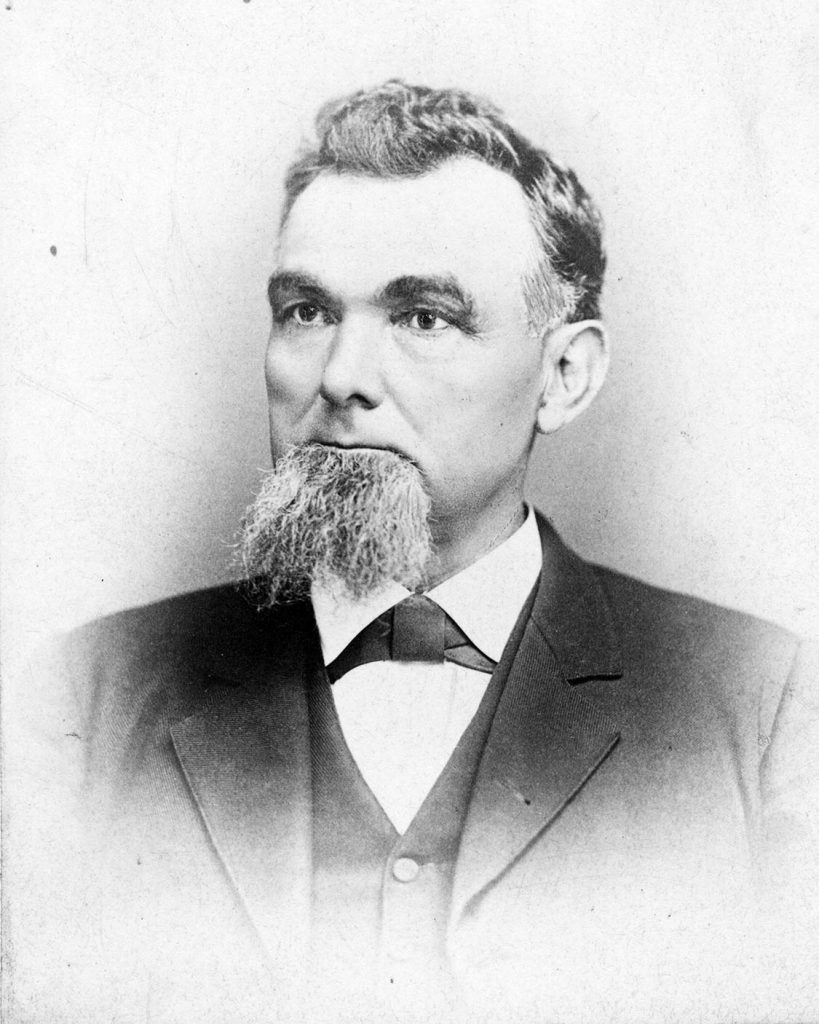
Photograph by B. F. Battels, Akron, Ohio. From The University of Akron Photograph Collection in Archival Services.
John R. Buchtel was born in 1820, in Green Township, Ohio. He spent his earlier years working on his parents’ farm. He received limited schooling and purportedly could barely spell his name by the time he turned 21. Despite his lack of education, Buchtel became a prosperous businessman. He first engaged in farming, owning several farms in Stark County and later Indiana. In 1863, Buchtel became an employee of Ball, Aultman, and Company, a farm machinery manufacturing firm in Canton, Ohio. He later became the first president of the Buckeye Mower and Reaper Company in Akron. During the 1870s, he became the general manager of the Akron Iron Company and developed 2,000 acres of land in the Hocking Valley, which later became Buchtel, Ohio. In 1867, he donated $31,000 for the construction of a college in Akron that was named in his honor and subsequently donated almost his entire fortune, along with much of his time and energy, to ensure the growth and survival of the college. Buchtel suffered a stroke in 1887, leaving him disabled. He died on May 23, 1892.
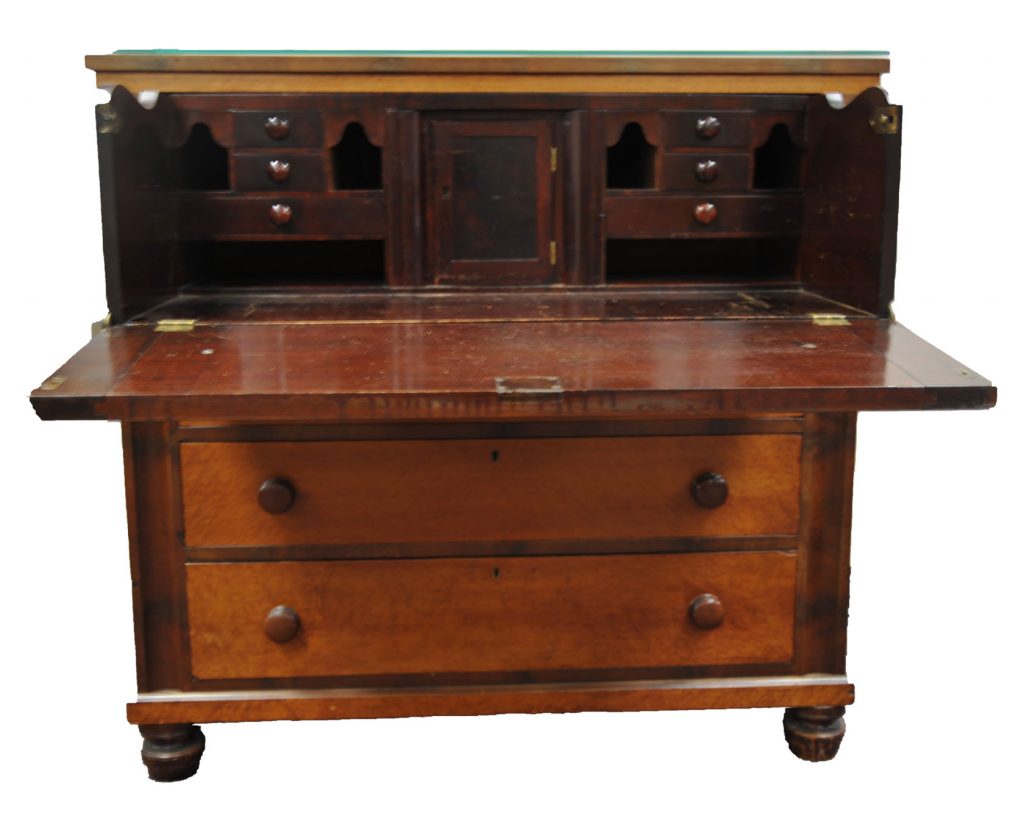
From The University of Akron Artifacts Collection in Archival Services. Donated by George Vance Lawry.
This Empire period secretary or writing desk belonged to Buchtel College founder John R. Buchtel. It is believed that he used the desk in his office in the Main College Building (now referred to as Old Buchtel Hall) while he served as President of the Board of Trustees of the college. The desk was made of cherry and bird’s-eye maple by cabinet maker Thomas Goff. The console includes three small drawers and a “hidden” vertical slide out document compartment on each side of the central door. According to Buchtel Family tradition, when John R. Buchtel passed away in 1892, the desk was acquired by Professor Carl F. Kolbe, and an inscription on the desk bears his name. Upon Kolbe’s death in 1907, the desk was inherited by his son, Parke R. Kolbe, who later became President of the college. Sometime after his death in 1942, his wife, Lydia Voris Kolbe, sent the desk to her sister, Elizabeth Voris Lawry (originally from Akron), and her husband, George Vance Lawry, in California. After they passed , the desk was inherited by their son, Edwin Vance Lawry, M.D., and his wife, Elizabeth McCann Lawry. After their passing, in 1981 and 1999, respectively, the desk was inherited by Edwin Vance Lawry, Jr., who donated the artifact to The University of Akron on June 11, 2018, in memory of his paternal grandparents, and the desk made its way back across the country.
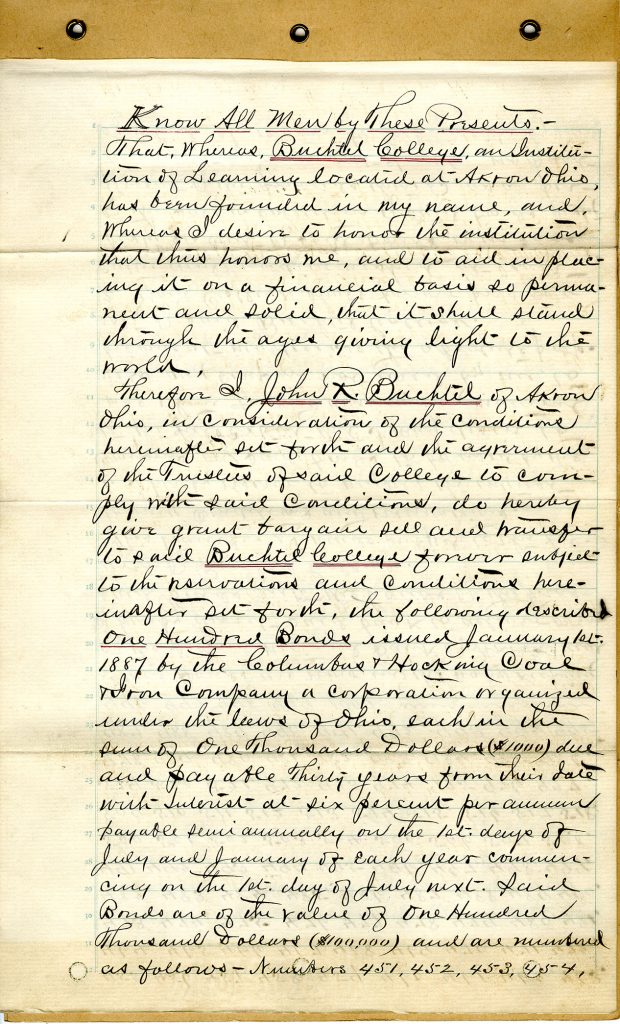
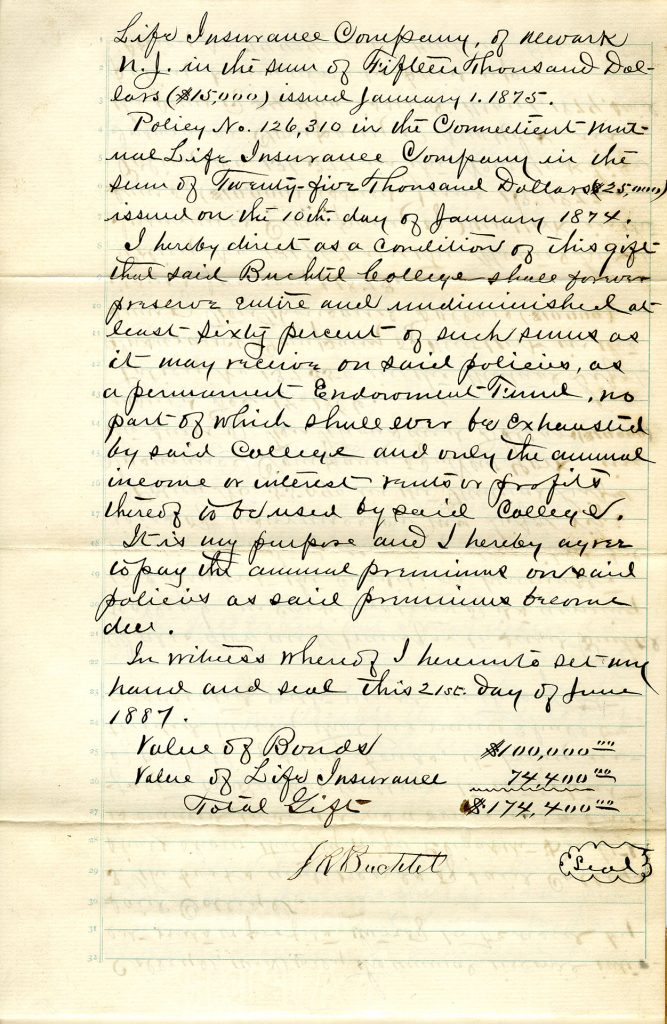
From the Buchtel College Records in Archival Services.
This legal document, known as a deed of gift, documents just one of many financial contributions made by John R. Buchtel and his wife Elizabeth to Buchtel College. In this particular transfer, Buchtel donates $100,000 in bonds and $74,000 in life insurance after his death to ensure the survival of the college that bears his name.
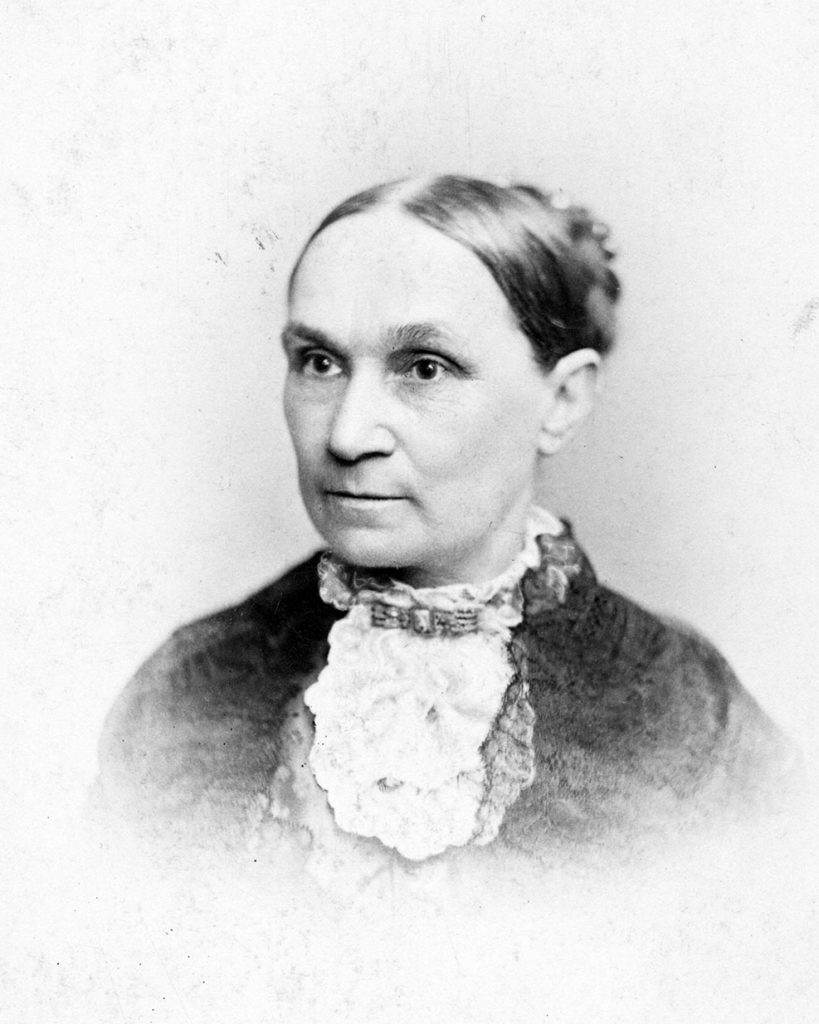
Photograph by B. F. Battels, Akron, Ohio. From The University of Akron Photograph Collection in Archival Services.
Elizabeth Buchtel (nee Davidson) was born in Union County, Pennsylvania, in 1821. When she was 13 she moved with her parents to a farm outside of Akron. In 1844, she married John R. Buchtel. Like many women of the time, her home and husband were the center of her attention. It is believed that she had some involvement in antebellum reform groups. After the Civil War, she was involved with the Akron Soldiers Aid Society and the temperance movement. She and her husband also dedicated much time and energy to the founding of the college in Akron that would bear their name. In 1881, Elizabeth Buchtel suffered a stroke, and a more severe one the following year, from which she never fully recovered. She spent the last 10 years of her life confined to a wheelchair with the companionship of her husband. On May 22, 1891, Elizabeth Buchtel died of her afflictions. Her husband would follow her in death one year later.
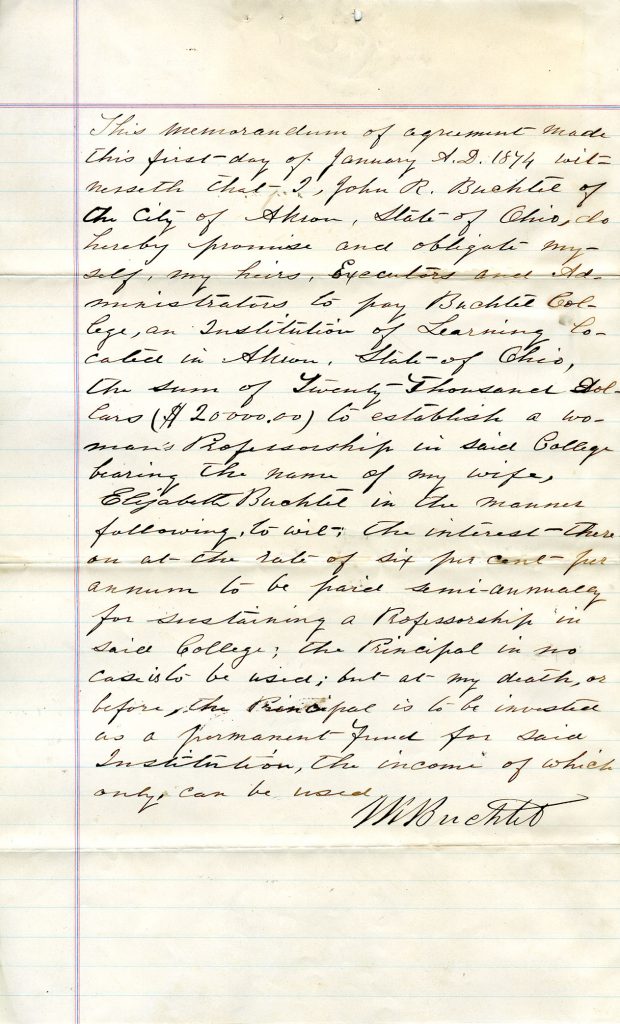
Memorandum of Understanding Establishing Elizabeth Buchtel Professorship, 1874
From the Buchtel College Records in Archival Services.
In this memorandum of understanding, John R. Buchtel donates $20,000 upon his death to establish a “Woman’s Professorship” at Buchtel College in the name of his wife, Elizabeth Buchtel. Universalists such as John Buchtel were very progressive, especially for their day. Therefore, from the beginning of the institution the college was open to both men and women, and had female faculty members on the staff from the very start.
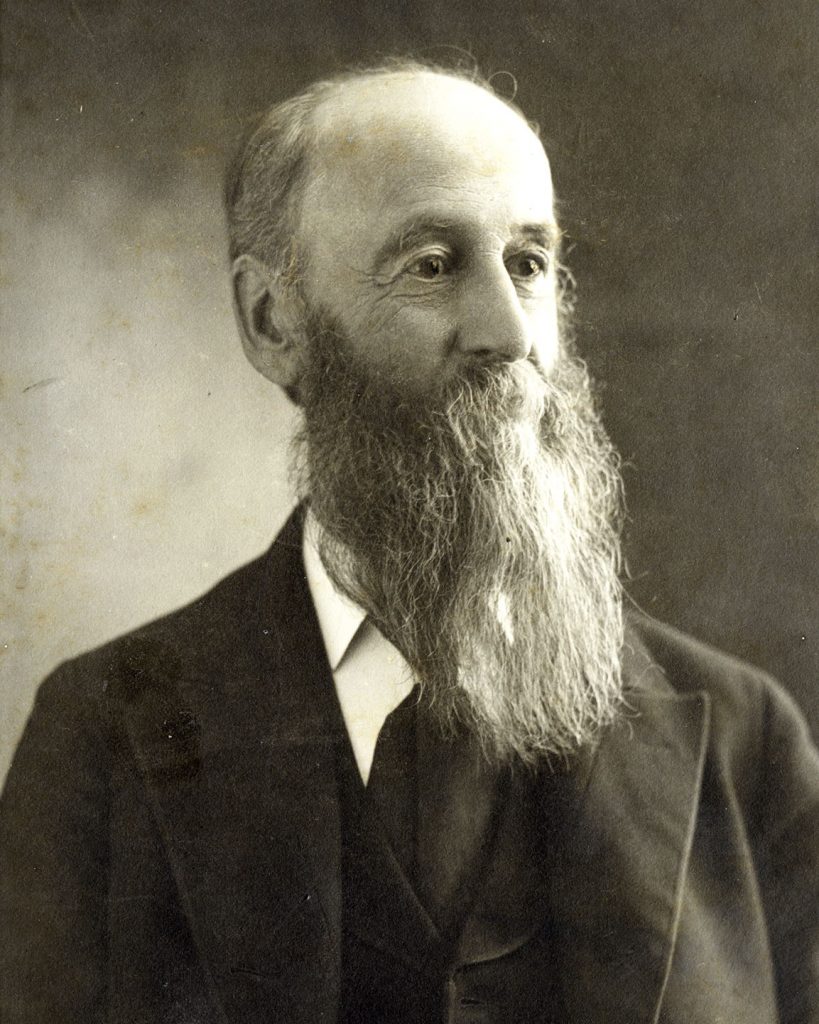
Photograph by Talcott Studio. From The University of Akron Photograph Collection in Archival Services. Gift of Ruth Seymour.
Rev. Andrew Willson was Chairman of the Committee on Education of the Ohio Universalist Convention. In 1867, he first suggested establishing a Universalist school in Ohio for both men and women and was identified with all subsequent activities connected with the founding of Buchtel College. In addition, he was financial agent of the college from 1875 to 1878, one of the most critical periods in the financial history of the institution, and was secretary of the Board from 1877 to 1878. He also made personal financial contributions to the college.
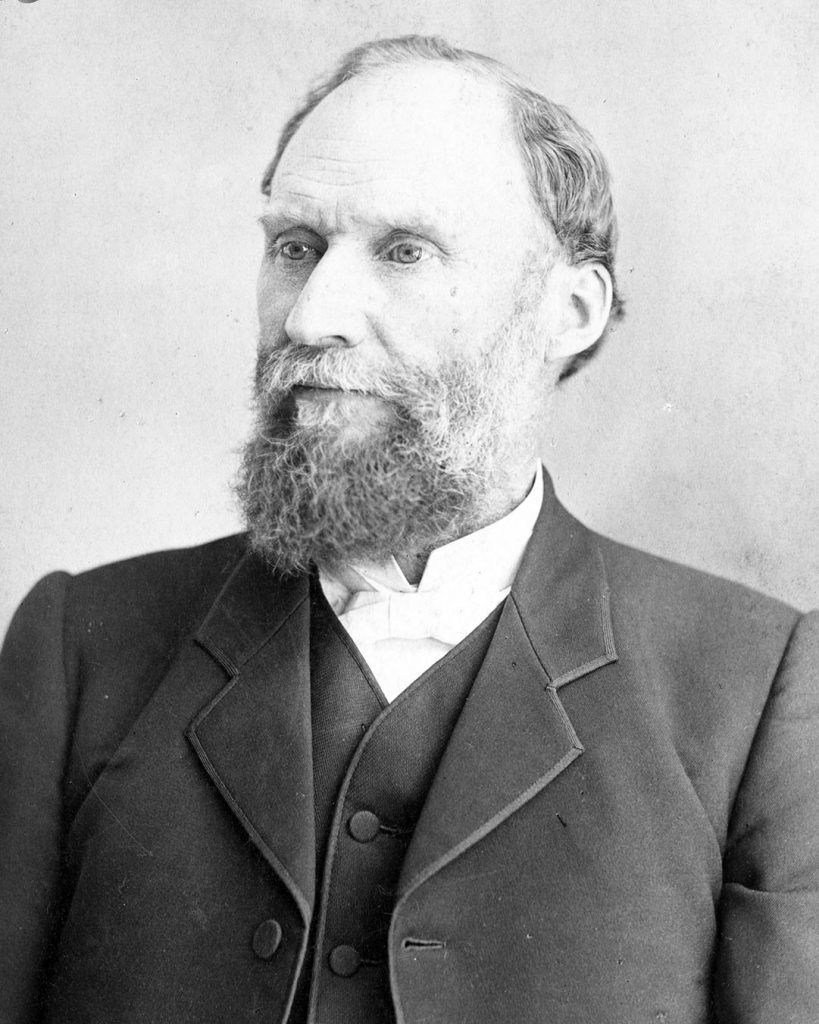
Photograph by Charles A. Park. From The University of Akron Photograph Collection in Archival Services
Rev. Henry L. Canfield, a founder of Buchtel College, is one of three people credited with bringing the college to Akron. He also served on its first Board of Trustees. As a member of the Ohio Universalist Convention, he worked to secure funding for the school to assist it during the depression of the 1890s.
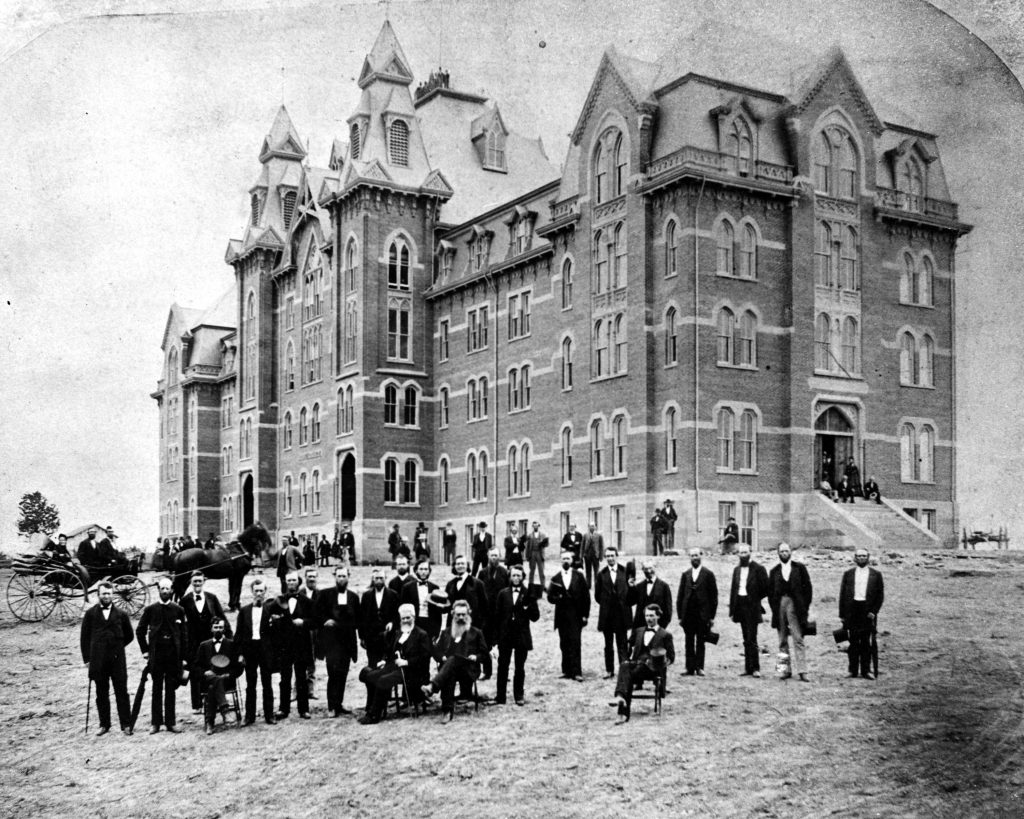
Photograph by J. J. McFadden. From The University of Akron Photograph Collection in Archival Services.
This photograph shows the completed Main College Building (now referred to as Old Buchtel Hall) with the corporators and trustees of the college posing in the foreground. John R. Buchtel, the greatest benefactor, can be seen in the driver’s seat of the carriage at left, along with Rev. George Messenger, original corporator and trustee, and their wives. Rev. Henry L. Canfield and Rev. Andrew Willson (third and fourth from the right, standing) were also corporators and trustees of the college and are credited, along with John Buchtel, with bringing the college to Akron.
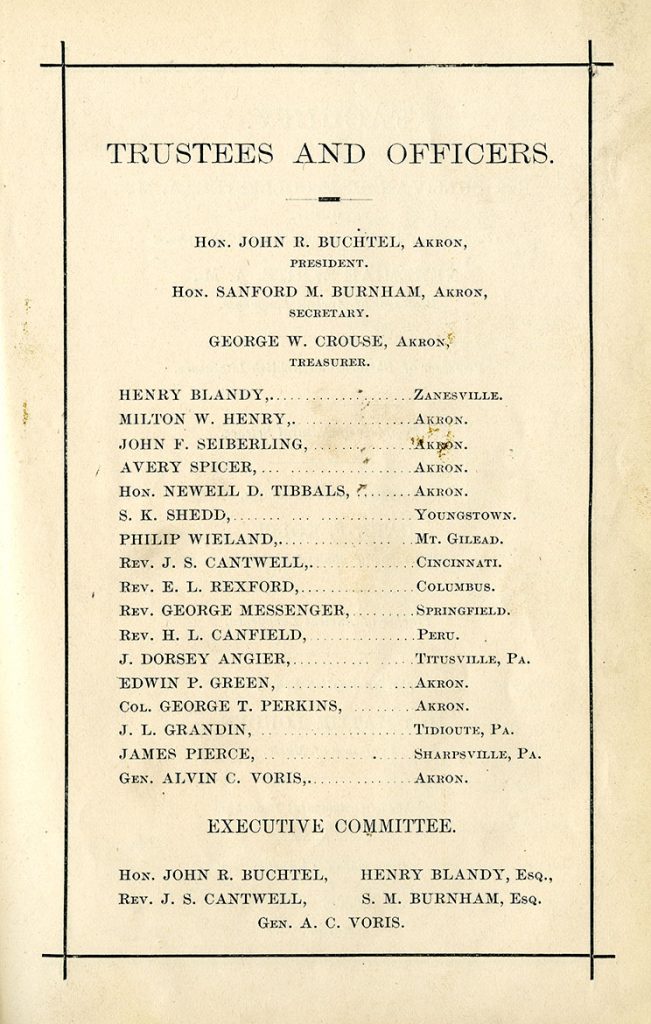
From The University of Akron Publications Collection in Archival Services.
Many of the founders or corporators of Buchtel College went on to serve as trustees and officers of the institution. This page from the first Buchtel College Catalogue lists the inaugural Board of Trustees and officers of the college, which includes many of the founders. This includes Rev. Henry L. Canfield, who helped bring the college to Akron; Avery Spicer, who donated the land on which the college was built; and of course, the Honorable John R. Buchtel, the greatest benefactor of them all, namesake of the college, and President of the Board of Trustees.

